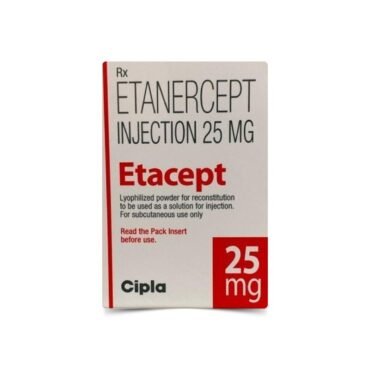What is the use of the Febuxostat tablet?
Febuxostat Tablet belongs to the xanthine oxidase inhibitors class of drugs. It works by lowering the level of uric acid produced in the body. Febuxostat is a medication that is used to prevent gout attacks but not to treat them once they have occurred
Is febuxostat good for uric acid?
Medications that reduce uric acid, such as febuxostat, are particularly helpful in the long-term treatment of gout. They can be especially beneficial if you have gout attacks on a regular basis. Gout episodes have caused harm to your joints or kidneys.
Is Febuxostat Tablet safe for the liver?
Although no cases of acute or chronic liver impairment have been recorded as a result of febuxostat, clinical experience with this drug is limited.
Can I stop taking febuxostat?
Stopping febuxostat without consulting your doctor or nurse is not a good idea. Stopping febuxostat abruptly can aggravate your gout. A dose that was missed: If you forget to take your tablet, remember to do so as soon as possible.
Can febuxostat cause kidney damage?
medwireNews: According to findings published in Arthritis Research & Therapy, the drugs februxostat and allopurinol are linked to an increased risk of acute kidney damage (AKI).
What are the side effects of the Febuxostat Tablet?
This medication may raise your chance of major heart and blood vessel problems such as unstable chest discomfort, heart attack, stroke, or death. If you get chest pain, difficulty breathing, a sudden or severe headache, or vision, speech, or walking issues, see your doctor straight away.
How long should I take Febuxostat Tablet?
To avoid a gout attack, remember to take a febuxostat every day. It can take up to six months for it to fully take action. It has no impact during a gout attack, but you should continue to take it on a daily basis even if this happens.
Does febuxostat cause death?
The most common cause of CV mortality in both groups was sudden cardiac death, which happened in 2.7 percent on febuxostat and 1.8 percent on allopurinol. Those on febuxostat had a greater risk of cardiovascular death during treatment or within 30 days after stopping it than those taking allopurinol.
Is febuxostat safe for heart patients?
When febuxostat was first approved, warnings that it should not be used in patients with ischemic heart disease or congestive heart failure were included in the product labeling due to pre-market research that revealed it was linked to significant cardiovascular (CV) events.
Does febuxostat increase creatinine?
The absolute value of the drop in serum creatinine in the febuxostat group was minimal (0.03 mg/dL), despite the fact that it was much lower.
Febuxostat significantly reduced systolic (SBP) and diastolic (DBP) over 28 weeks in adults with untreated hypertension and gout, according to a retrospective study of febuxostat Phase 3 studies. To know more, click here.
Does febuxostat increase blood pressure?
The findings showed that while febuxostat did not raise the risk of a combination of heart-related mortality, nonfatal heart attack, nonfatal stroke, and unstable angina (the primary outcome), patients on the medicine had an elevated risk of heart-related fatalities.
Can febuxostat cause a stroke?
Furthermore, in patients with mild-to-moderate renal impairment, the safety and efficacy of febuxostat have been demonstrated without dose adjustments. Allopurinol and febuxostat have been shown in a number of studies to be helpful in lowering blood pressure (BP) and slowing the course of CKD.
Is febuxostat safe for hypertension?
Febuxostat Tablet Reduces Blood Pressure in Hyperuricemia and Hypertension Patients. Febuxostat medication may improve the BP response to urate-lowering therapy in patients with hyperuricemia and normal renal function.
Check this Arthritis product Adalimumab 40mg Injection Exemptia, or you may explore more Arthritis products by clicking here
We are an exporter from India and work in several countries like the UAE, Oman, Qatar, Myanmar, Saudi Arabia, Netherlands, Albania, Saint Lucia, Jordan, Romania, South Africa, etc.







